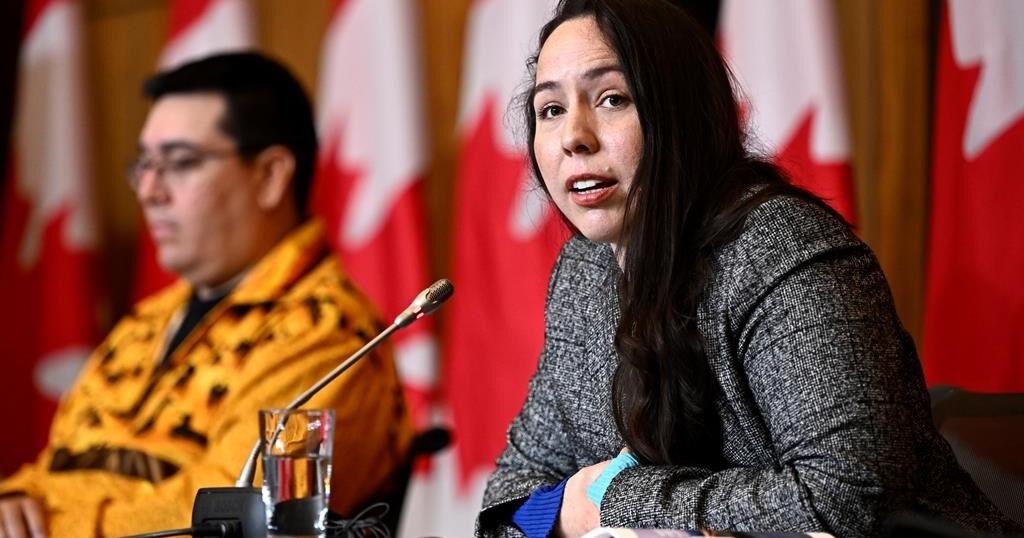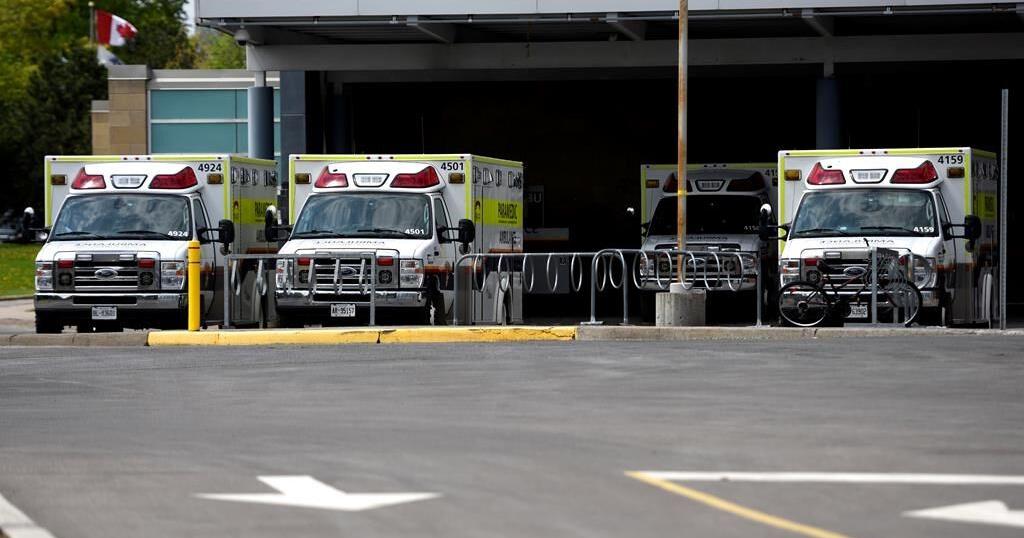OTTAWA – The Assembly of First Nations has postponed a special assembly, where chiefs were set to vote on a landmark child welfare reform deal with Canada, after chiefs and advocates raised concerns about the process and a late translation of the document to French.
The assembly was scheduled to be held in September in Winnipeg, but it will not happen until October or November, the AFN said Tuesday.
“While many chiefs have told me they are eager to support the draft agreement next month, the AFN executive committee has agreed to provide more time for other chiefs to review the draft agreement,” National Chief Cindy Woodhouse Nepinak wrote in a letter.
“In the meantime, I am looking forward to meeting with more chiefs over the coming weeks to discuss the agreement, listen to your perspectives, and answer questions.”
Canada, the Assembly of First Nations, Chiefs of Ontario and Nishnawbe Aski Nation reached a $47.8-billion agreement in July to reform the First Nations child welfare system after decades of litigation that found Canada discriminated against children on-reserve.
In recent weeks, chiefs and advocates have publicly raised concerns about some parts of the agreement, and the fact that a French-language version of the document was made available weeks later. The deal was reached on July 11 and distributed in English the next day, but a French-language version was only released on Aug. 12.
Savanna McGregor, who serves as the grand chief of the Algonquin Anishinabeg Nation Tribal Council representing some First Nations in Quebec, said Tuesday afternoon she was optimistic the meeting would be postponed in an effort to give chiefs more time to review the deal.
“All of our communities need to be given a fair chance to make a detailed analysis of the final agreement, and that takes time,” said McGregor.
“The subject matter at hand is too delicate.”
In a statement, Indigenous Services Canada spokesperson Anispiragas Piragasanathar said all documents published by Canada about this agreement were in both official languages, but the final agreement was published by the AFN.
“In the spirit of reconciliation, Canada should not and will not be telling First Nations organizations how to engage their own members,” he said.
“We will respect their self-determined process.”
Quebec-Labrador regional chief Ghislain Picard said the federal government has an obligation to ensure the document was translated, not the AFN.
“There’s an Official Languages Act that needs to be respected,” Picard said in an interview last week.
The Assembly of First Nations represents some 630 First Nations chiefs across Canada. Largely funded by Ottawa, the assembly helps with federal efforts to consult on legislation that could affect First Nations, and advocates on behalf of chiefs based on resolutions passed at their meetings.
McGregor said chiefs from Quebec and Labrador had an emergency meeting with Indigenous Services Minister Patty Hajdu and AFN National Chief Cindy Woodhouse Nepinak on Saturday.
The chiefs pushed for a delay of the vote until October.
The proposed deal is worth more than double what was originally promised for long-term reform in a settlement agreement that resulted from a human rights complaint over underfunding of child welfare services.
The federal government is responsible for child welfare on reserves, and provincial governments for child welfare programs everywhere else.
But Ottawa’s funding was only on par with the provinces when it came to foster care because they had to pay provincial agencies to provide that service at provincial rates. The Canadian Human Rights Tribunal ruled that Canada acted in a way that discriminated against on-reserve children.
Cindy Blackstock, who heads the First Nations Child and Family Caring Society and helped bring forward the initial complaint to the tribunal, said in a recent interview that she was similarly concerned about the translation issue.
“You can’t even get onto the Supreme Court unless you’re bilingual,” she said. “But for some reason, there’s a serious agreement that’s going to impact kids for generations and it’s not in French.”
The deal to reform First Nations child welfare has been the subject of lengthy and sometimes testy discussion among chiefs and advocates.
In June, three regional chiefs representing nearly half of First Nations accused the AFN in a letter of overstepping its mandate by making decisions that will directly affect children and families without consent, and saying it wasn’t be transparent in negotiations for the settlement.
In a letter of response, Woodhouse Nepinak called a number of those claims inaccurate, and said while the chiefs may disagree with how negotiations have been unfolding, attacking employees and legal counsel “is not helpful.”
Two months after he signed that letter criticizing the process, Picard said “those concerns are still very much there.”
Woodhouse Nepinak was not immediately made available for comment.
This report by The Canadian Press was first published Aug. 27, 2024.

























